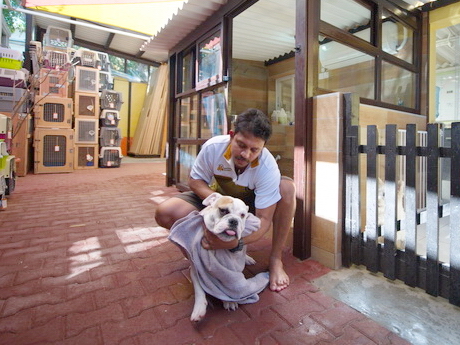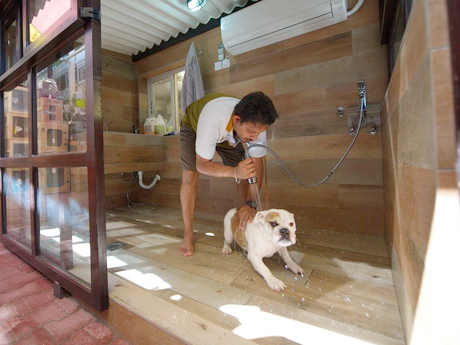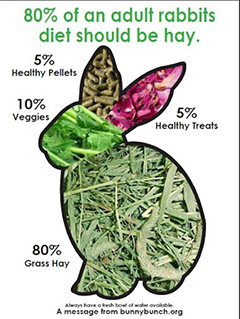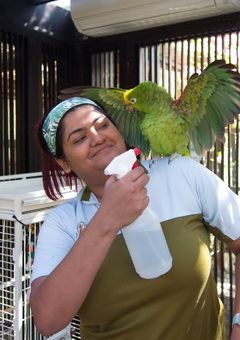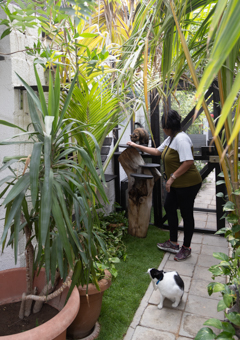love... and other stuff too

Warning!: This page is for those who love reading and crave detail!
We take it for granted that your dogs want to have fun; that they want to and should run around and bark and play... and of course socialize with other dogs too; or that your quieter ones want to be cuddled and held and sit in our lap... or lie down in a quiet corner to just be. We take it for granted that your cats might want a scratch behind the ears or to make a little mischief with whatever is handy, be it a toy or something that wasn't originally meant to be a toy at all! We take it for granted that dogs and cats and most other animals love to be outside in the fresh air or snoozin' under the beatin' sun, and that, like us, a little shade or air-conditioned relief is just the thing after the tanning session is done... and that they can choose which and when.
We take it for granted that when you're on holiday or away for any reason and you need a pet hotel, you'd like to think of your dogs as being on a kind of holiday too, and of your cats, birds, rabbits... all of them... as having a good time and being taken care of in a way that makes you and your pets feel safe and watched over ~ and that when you return your pet is happy and well.
And perhaps most of all, we know that you take it for granted that anyone caring for your pets must fundamentally, almost compulsively, love animals ~ because without that, you and we ain't got nothin'.
...and other stuff too
But here are some other things we think about too.Everything is about training. Everything. We think about this a lot.
Many organisations, whether it's one like ours or an IT company or a bank or a hotel or a hospital... you name it, just about every one of them makes public claims about how well they train their staff. Some actually do.
It is not difficult to find real animal lovers ~ so many of us are. It can be very very difficult, however, to find real animal lovers who are also committed to the rigours of a very serious Animal Care and Animal Relocations training program and the very long, intense hours, months and sometimes years involved in becoming a truly knowledgeable and experienced Animal Handler and Relocations specialist. It takes almost immeasurable amounts of dedicated training and group effort to coordinate Animal Care and Relocations people to work in an organised and thoughtful way as they all come together to provide care for your pets and other animals. And when we find the right people (or they find us!), we actually rejoice. (Yeah, sounds corny, we know. But it's true.)
Yes, Animal Care is first and foremost about loving animals of all kinds ~ but it's also much more than this. And yes, most, if not all pet owners implicitly understand that the people they entrust with their pets must have gone through some sort of training, just like in any other business. But how much? To what extent? And in what areas exactly?
Although we of course have formally educated vets and qualified nurses working in our clinic, our boarding and relocations people are not formally trained by universities or other independent education systems because no such systems exist for this type of work and vocation. Now, perhaps it seems crazy to suggest that there is something especially complicated or technically demanding about boarding and relocations work, but indeed there is ~ if this work is taken very seriously. So although this is work with lots of pleasure mixed in (because, after all, our job is to be with animals all day... and how cool is that?!), doing it well and responsibly takes a whole lot of learning.
Just as you expect there to be fun and play and good food and water and cuddles (we do too), don't you also actually expect, when you think about it, that someone who really has learned about animals (of all kinds) is watching over your pet when you're not there or when relocating?; someone who actually knows when things are good with your pet but who can also identify when something may not be so good and knows what to do about it?; someone... some people... with love for and interest in your critters, but also with skill and an experienced eye, with the support of an organisation behind them which merits and requires not only love of animals but also studious, committed knowledge? As with just about everything in life, a thing can be done with great care, attention to detail and enormous preparedness... or less so.
So we want you to know, whether or not it seems kinda crazy, that all our Animal Handlers and all support staff go through months and months of detailed, systematized training in animal care (and indeed in customer care) procedures and protocols, shaped by 30+ years of experience, before they work independently with your pets and you. And that it is more than a full year of ongoing close supervision before our more experienced Animal Handlers finally, gently toss those newbies out of our newbie training nest. The same is true of our Global Relocations Account Managers and their support staff too.
We know it can seem immodest to flap on about ourselves in this way, but we think training is so important that we often think of ourselves as a training organisation first and then as a pet care, relocations and veterinary company. How can we care for animals and relocate them, and indeed do quality veterinary work, unless we really very carefully know what we need to know, right down through all non-veterinary and support staff? We believe this is what makes the difference here, so we're shouting out about it a bit.
~ ~ • ~ ~
If you're thinking this is all just a lot of dishonest blather meant only to get you through our doors, we understand. Who can you trust?
But our doors are always open. Any one of you is welcome at any time to come see us; not only for a casual visit, but to inspect. You are welcome to spend a day with us, or just a few hours; to get behind the scenes and work with our staff (in Boarding & Daycare, Global Relocations or our veterinary clinic) or just ask a ton of questions. There are no time limits, no nooks and crannies you're not allowed to see (and not everything is picturesque!), and we're not only happy but in fact eager to show you as much of the way we work as you might be interested in.
Love for animals and training is the basis for all we do. We genuinely invite you to put us to the test.
We also think and do a lot about your pet's health... and not just from a general point of view but specifically and carefully about how to know what your pet's health is in detail... before the need for a vet arises and, in fact, so that we can aid any vet in dealing with problems we discover or which come up because we can provide very detailed background and ongoing information about your pet while they are boarding or in daycare with us. We do a lot to continue knowing through constant monitoring and documenting so that on any given day, at any given moment, we know and can communicate to each other within DKC, to you, and to your vet (whether you use DKC Veteriniary Clinic) or another preferred vet) exactly how your pet has been doing, in case that knowledge is ever required.
- We carefully and meticulously (and usually a little playfully too) give your pet a good once-over when he or she arrives so that we know his or her current condition in just about every respect. This means that following the hugs and cuddles and smiles upon arrival, we check his or her ears, eyes, teeth, nails and paws, body and coat, mood and temperament... every little thing to make sure we know what's going on. You'd be amazed how much we learn and how, usually (though not always!), they love the attention! Oh, and we do this for birds and rabbits and, well, every creature who comes to stay with us.
And if our human customers ask nicely, we'll do it for them too! (you cheeky devil, you
)
- If you have a pet on medication, bring him or her to us. We have careful protocols in-place to ensure that medication is given correctly in all respects, including for diabetics, and staff at the ready any time of day. And of course we work very closely with our own vets and yours when needed.
- Every single day, for every single pet in our care, we monitor and document how much they eat, whether or not they are toileting and how well or poorly, and give them a physical once-over during cuddle sessions to make sure they're well. We also weigh each and every dog and cat at least every two weeks, even when there is no suspicion of a problem, just to make sure we are sure that all is good. We have a lot of staff doing a lot of careful work to make sure we know your pets are well, and it's amazing how much we learn while playing ball with them in our yards, dangling toys in front of your felines, or talkin' to Peter the Parrot.
- Every single day, every single animal in our care gets the attention and real interest you'd want and expect from us, but while this is happening they are also getting our experienced eye as we monitor and document their overall and specific wellbeing. If anything suspicious develops, we have a behavioural and medically-related history to help us understand how he or she is and to act on things quickly. If there is anything about which we are uncertain, we contact you, and failing that, we talk with our own vets and yours.
We know you don't really want to think about things going wrong, but sometimes they do, whether your pet is in your own home with you, with a friend or with us. We try very hard to know exactly what's going on at all times. When there is nothing wrong, and usually there isn't, then fun, love, barking, meowing and squawking is the name of the game.
If your cat has a sniffle or a snuffle or shows any other symptoms of flu during her stay with us, we like to administer a dietary supplement containing L-Lysine; it comes in a tasty gel and is an excellent and completely safe way to boost your cat's immune system and help her fight off those pesky colds. L-Lysine reduces the effects of one of the most common types of flu-causing viruses in cats, shortens the duration of the symptoms and also reduces the possibility of your cat spreading the virus around to others. If your cat has ever had flu before (and many have!), then it's very possible that she may be a carrier of this particular common virus (don't worry!) and could either pass it on to other cats or experience the symptoms herself again. So, we like L-Lysine and we'd like to be able to use it with your cat if and when we think it might be needed or can just help a little to make your cat feel good when she's not so good. But... there's a catch! You see, we do need to charge you for the administration of this little helper-upper - not a lot, just our tiny little "medication administration" fee (see our Price List) - and we thought in addition to telling you about the good it can do, we ought to tell you that it ain't free of charge. (Sorry!) The important thing is that using L-Lysine is completely up to you, no pressure whatsoever, and our Handlers will talk to you about it if we think the need arises.
Now to the canine side of things.
If while with us your dog shows any symptoms of digestive upset in the form of loose stools or diarrhoea, but is otherwise perfectly well in all other ways and is eating well and has his usual level of energy, we like to administer a probiotic paste called Promax. This product is a triple-action supplement to help restore normal digestive function in dogs, containing a probiotic called enterococus faecium which multiplies rapidly in the intenstine and increases the gut acidity which inhibits the growth of harmful bacteria, and therefore really helps to normalise any upsetting bacteria in his intestines, and counteracts the causes of diarrhoea. Promax does not contain any medication at all and is very safe to use. It's a 3-day course and we feed it straight into his mouth (it's quite yummy it seems) and most cases of diarrhoea completely disappear within a couple of days. Nice! Additionally, we often want to switch your dog's food type to a special veterinary diet which deals directly with intestinal issues, and both this and Promax, used either separately or together, usually really do the job! But!... yep, both the intestinal food and Promax also come with our tiny little "medication administration" fee (if either one or both are used) (see our Price List), plus the cost price of the Promax (we do not charge a mark-up for this at all), and so this too is absolutely up to you. Just talk it through with our Handlers when you make your booking, or on the day of arrival, or indeed anytime thereafter if your pooch is having a bit of an issue (which of course our handlers will alert you to).
Having said all this, if your pets do not feel better even with our in-house medical magic, we will then probably want to take them to see a vet. Of course we won't do this without first getting in touch with you, but we're mentioning it here so that you're aware and prepared, including about our vet handling fee which would be added to your invoice in these circumstances and if you agree. You can learn more about the charges associated with this by taking a look at our Price List.
We have a selection of foods we have come to rely on for all the animals in our care... dogs, cats, birds, rabbits, tortoises, guinea pigs, lizards... you name it.
Royal Canin for dogs and cats. This product is widely regarded by veterinarians worldwide and in the research as genuinely premium food for general daily feeding. Furthermore, this product has a special veterinary diet product line of one type or another which address specific nutritional or dietary needs that your pet might have as diagnosed and prescribed by your vet, which we will more than happily provide your pet while in our care if your vet provides us with that instruction.
Specifically "designed" "salads" for rabbits and rodents and birds based on their actual physiological needs, as well as some selected high-quality dry foods such as Beaphar... but not food out of a box from your local grocer.
And believe it or not (please believe it!), these choices are all based on real research we've done to make sure we're doing right by you and your pet, and we continue to research and make improvements in this area as we go along.
If you'd like to know more about how and why we feed your pets the way we do, just ask. If you want the "recipe" for our "salads", you're welcome to them (it's actually not that complicated but it is carefully considered).
If you have your own special diet for your pet, that's fine too. Just let us know what it is and in most cases we can make that happen, usually at no additional charge to you.
The point is that we do not just purchase products sold by clever people who say it's the best. All products are carefully researched by us so that we have confidence in them. Then if experience suggests one thing or another about a product, or about one of our "salads", we pay close attention and act on it.
We know that some of you have pets who can sometimes be a little difficult to get along with ~ dogs, cats, birds and others (you have a snake?) who are sometimes either a little edgy with strangers (we're not that strange, are we?) or, truthfully, just downright aggressive.
Well, all our Handlers are trained to work with aggressive animals of all kinds and our more senior staff have significant experience.
You and your pet are always welcome here.
We know it, you know it, everyone talks about it: dogs are social animals and love to play and mix it up with other dogs.
We take this seriously. In fact, when you go through our admission process, one of the questions we'll ask you is whether or not you'd like your dog to share an enclosure with another dog even if not from the same family (we call this "Buddy-Boarding"). We'll also ask if you would like us to introduce your dog to other dogs during playtime in our yards, even if they're not Buddy-Boarding. We'd like you to consider this seriously because we, like many, believe that socializing dogs is not only good for them but important for them (and possibly important for you and your family too).
We will not socialize your dog, either by sharing enclosures or during playtime, unless you tell us we can. Trust this.
We know that a fair number of you feel that your dog will not socialize well at all; either too shy and afraid, or perhaps too much potential for aggressiveness. That's true. Not every dog gets along well with others or immediately wants to. And we're very careful about respecting their characters and your wishes in this regard.
However, we also know that a great many dogs do love to socialize. We know that a lot of dogs who are believed by their owners not to socialize well, or dogs who "don't like being with other dogs", are often really just not used to it because they haven't had enough opportunity nor enough exposure to other dogs under watchful and experienced eyes. This can be especially true in the UAE where the social physical infrastructure just isn't set up to encourage dogs and their owners to get out there... together. We know that most dogs, from the smallest to the largest, ultimately want to socialize and, once past their initial problems with it (whatever those problems are), are very happy to and accordingly can often further develop beautifully as dogs in character, confidence and general behaviour because of it.
- With your permission, we only put dogs together who are of a similar size, strength and overall temperament. If they are not similar, then before socializing we must know from you that they already know each other well (from the same family or even friends of family, for example) and that you have asked us to put them together.
- Our most experienced Animal Handlers make all decisions about which dogs can socialize together, and there is always monitoring and control when this happens.
- We always pay attention to the needs and character of the dog. If they're gung ho and ready-to-go, great. If your dog is quieter, shyer and more tentative, then we go slow, at their pace, or not at all if that's ultimately how they are happiest.
- We have a lot of handling staff, with a very high staff-to-animal ratio (this is a key statistic in determining some aspects of the quality of care your pet will get in an animal care and daycare facility). This means that the attention needed to socialize your dog in a safe and happy way is available at the very least because of sheer numbers.
We do urge you to let us let your dog play, have fun and socialize with other dogs as much as possible, for their sake and yours. (Take a look at our Kennels Pictures and the DKC Video Tour to get an idea of how good it can be.)
Seriously, didn't you know that runnin' crazy for 10 minutes and then stoppin' to sniff butt is simply the most fun you can have in the world!?
So, the story goes like this: Cats are solitary animals, they don't love everyone, they may love only a certain few, and they may in fact love NO ONE! And they CERTAINLY don't like to socialise with other cats! No way! Too territorial. To individualistic. Too... well, just too. Right? Right!
Well, we've got a slightly different story to tell, and we think some of you do too.
Look, the above story is true for many cats. Definitely. But not for all. We know this because we're taking care of innumerable cats each year and what we've learned is that there are many other types of cat: cats who love attention, love cuddles, love people, and... wait for it... love being with other cats!
So what do we do? We socialise them. We're careful about this; thoughtful, watchful and sure. But we do ~ with the permission of our customer's, of course. And we do this in a few different ways, depending on the cat's and cat-owner's needs and wishes.
Some cats are let out of their enclosure into the main corridor area of our secure catteries so that they can mingle with one or two (or three? oh no, not that!) other cats from other families whose owners want to let their cats socialise too.
Some cats are are put into our Cat Jungle with other cats. Again, same thing: it's secure, it's careful and thoughtful and monitored, and it's a lovely chance for a cat to socialise. Most of the time this works extremely well and the cats love the experience. Sometimes they don't. When they don't, we don't; and we let our customers know how it's all going, with regular updates.
And finally, if the cat in question is a REALLY friendly cat who just LOVES socialising, and if their owner is keen to explore this socialising possibility even further, we also do Buddy-Boarding for cats, believe it or not. Now, admittedly, Buddy-Boarding for cats requires particularly socially inclined cats, but it's definitely doable for some cats and they really enjoy being in an enclosure with a buddy instead of being alone, whether it's to play and romp together or just quietly snooze.
We think socialising and, yes, Buddy-Boarding for cats can be a real good thing. So we'd like you to think about it and then talk to us if you're interested.
Some dog owners (and indeed kennels operators) feel that when their dog stays in a kennels, they should be completely separated from other dogs when in their enclosures ~ not only physically but also visually and, to whatever extent possible in some cases, aurally too. They feel that this helps to keep stress down and to keep dogs more calm and quiet. This view is also sometimes motivated by concerns on the part of kennel operators about zoning laws related to noise control (the idea being that if dogs can't see each other, they'll bark less) and, in the case of shelters, concerns about controlling and containing illness within a population of dogs and cats with a completely unknown vaccination history.
There are many kennelling facilities and shelters in the UAE and around the world which are designed with just these goals in mind, whereby the enclosures are solid walls of one construction material or another on three sides (and sometimes up to the roof), and the only open face of the enclosure is the front. The daily reality for dogs in this kind of environment is that most, if not all, of the contact and interaction they get is only with the human beings taking care of them, or for limited and controlled periods of time with other dogs in group sessions.
To be frank, we don't agree with this approach for a kennels which cares for family pets who have all been properly vaccinated and are well looked after. We're not being very diplomatic, it's true, but we think it has to be said. And we hope you will consider it.
Our kennels do, of course, have distinct, separate and safe enclosures. Of course. However, they are also very open. How? Take a look at the pictures in this section and here. What you can see is that our enclosures are indeed enclosed but they are also very open in the sense that all the dogs are able to see each other, bark with each other, interact and experience the place together, whether or not our Handlers are engaging with them directly. As a result, your dogs are often very active and stimulated through much of each day, and they are interested in and enlivened by the environment in a way that is, actually, difficult if not impossible to reproduce back at home and elsewhere.
~ ~ • ~ ~
Imagine you're a dog.
Now imagine that you're in a place where you can smell and hear the other dogs and people around you but you can't see them; can't interact with them.
We know from experience that most dogs feel safer and happier when they can see what's going on around them and can actually engage with it all, openly and excitedly, while at the same time having some limits on their choices because they are indeed in an enclosure.
Imagine you're a dog and that you're generally having a good ol' social time... along with the romps in the yard with other dogs or on your own or with our Handlers, AND while in your enclosure you can still... how shall we put it... uh... party!
That's not stress, in our view, it's community. It's what dogs naturally enjoy and want. It's barking at each other and with each other in chorus, and jumpin' about. All that exercise and activity and stimulation, even when inside your enclosure. It's socializing, safely, even when they're being quiet or sleeping.
And yes, of course it's true that not all dogs want that strong community... a few don't... but we pay attention to that too. We have enclosures that are a little more away from the centre of activity, and if we really see that your dog wants even more quiet and calm, we often bring them into our offices to spend time with our staff as they work... sitting or lying at their feet or by their desks or, on the not-so-odd-occasion, in their laps.
Do come to our place to experience this for yourself; the general level of comfort, the excitement and simple contentedness of the community, all of which we feel every day and hope you will too. Stay as long as you like and feel how our kennels really is a dog's place.




